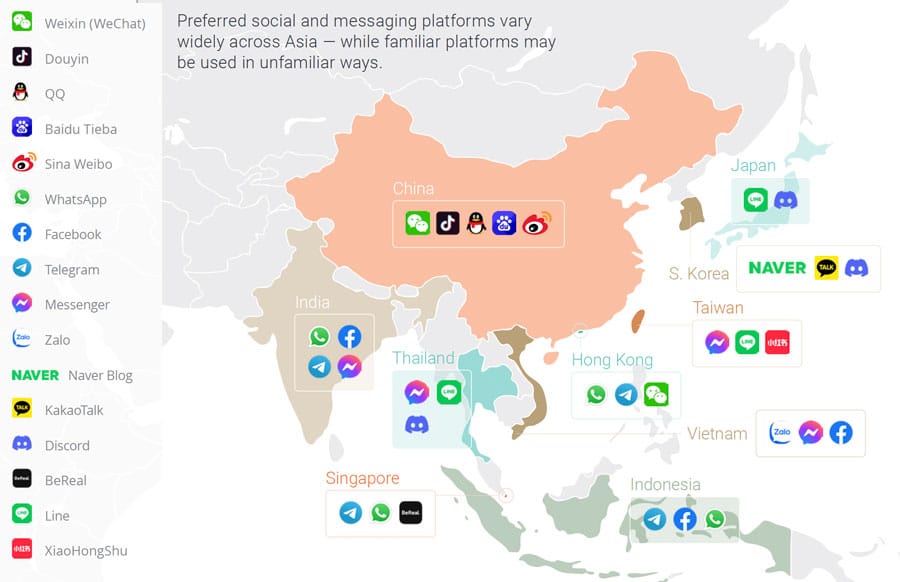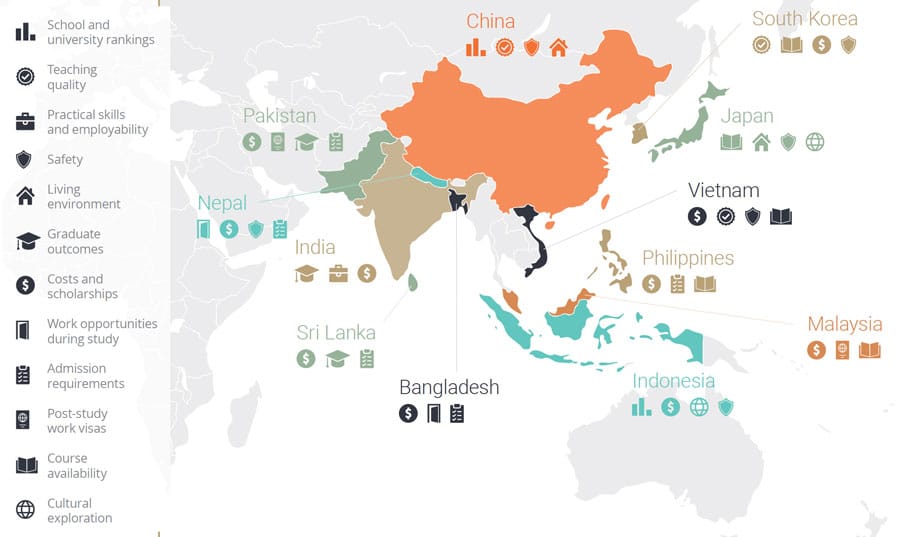Study tracks top messaging apps and student priorities in key Asian markets
- New research by Sinorbis shows that students’ preferred messaging apps differ greatly across Asia
- It also highlights striking differences in how students in various Asian countries make decisions about study abroad
- The research underlines the importance of tailoring student outreach not just by region, but by country
It can be difficult to track which messaging apps are the most popular in different countries, but a new research report sheds light on what’s happening in Asia right now. It also illustrates just how much student priorities change from country to country.
The report, by Sinorbis, a marketing technology firm, shows that educators need to think more broadly than Facebook when marketing in Asia. Facebook is a popular channel only in three of the Asian markets profiled: India, Indonesia, and Vietnam – and even then, not the most popular.
The top apps to reach students on in various Asian markets, according to Sinorbis, are:
- China: WeChat, Douyin (TikTok), QQ, Baida Tieba, and Sina Weibu.
- Japan: Line and Discord
- South Korea: Naver Blog, KakaoTalk, and Discord
- India: WhatsApp, Facebook, Telegram, and Messenger
- Thailand: Messenger, Line, and Discord
- Singapore: Telegram, WhatsApp, and BeReal
- Hong Kong: WhatsApp, Telegram, and WeChat
- Taiwan: Messenger, Line, and XioHongShu
- Indonesia: Telegram, Facebook, and WhatsApp

The differences between the markets are quite striking, and highly important to know for educators who may be newly recruiting in some of these countries.
Content design needs to match student priorities
The report points out that Chinese websites are designed to prioritise global ranking scores, in keeping with Chinese families’ higher valuation of rankings compared to families in several other Asian markets. In India, by contrast, websites put the focus on Indian student testimonials, scholarship information, and information on employability and practical skills.
As the screenshot below illustrates, the way that students value different aspects of study abroad when deciding where to go is as different as their favourite social media channels. These are the student priorities that Sinorbis has found to be present in several Asian markets.
- China: School and university rankings, teaching quality, safety, and living environment
- Japan: Course availability, living environment, safety, and cultural exploration
- South Korea: Teaching quality, course availability, costs and scholarships, and safety
- India: Graduate outcomes, practical skills and employability, and costs and scholarships
- Bangladesh: Costs and scholarships, work opportunities during studies, and admission requirements
- Sri Lanka: Costs and scholarships, graduate outcomes, and admissions requirements
- Nepal: Work opportunities during studies, costs and scholarships, safety, and admissions requirements
- Pakistan: Costs and scholarships, post-study work opportunities, graduate outcomes, and admissions requirements
- Indonesia: Rankings, costs and scholarships, cultural exploration, and safety
- Malaysia: Costs and scholarships, post-study work opportunities, and course availability
- Philippines: Costs and scholarships, admissions requirements, and course availability

The report reminds us that a one-size-fits-all approach to recruitment does not work – even within a region. Tailoring messaging by country and by language, ideally, offers the best chance of converting student interest to applications and enrolments.
For additional background, please see:
















